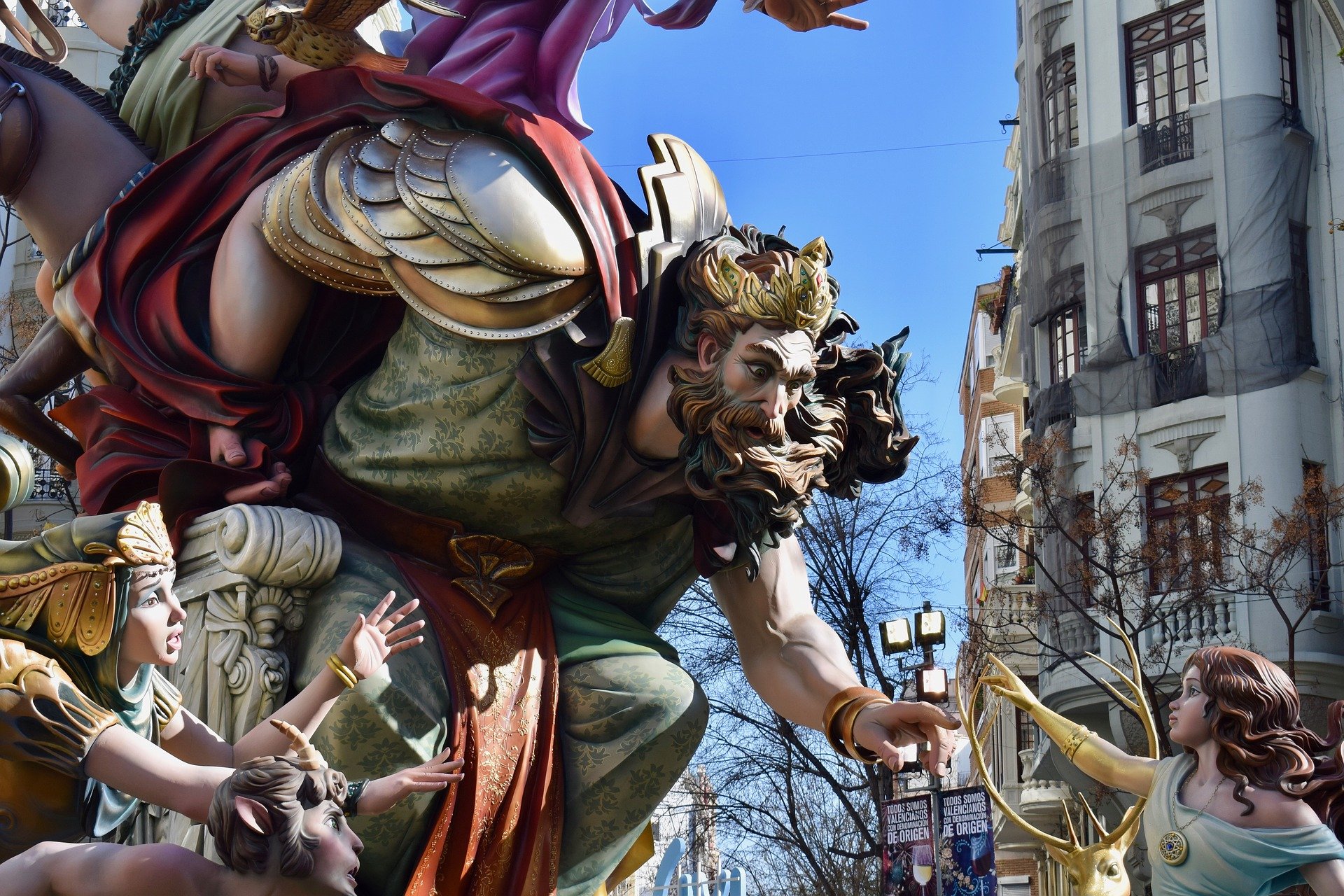Las Fallas de Valencia are festivals that go from March 15 (plantá) to March 19 (cremá) with a tradition rooted in the Spanish city of Valencia and different towns in the Valencian Community. Officially they begin on the last Sunday in February with the act of the maid.
Currently, this festival has become a very important tourist attraction, since in addition to being classified as a festival of International Tourist Interest, in November 2016 Unesco inscribed them on its Representative List of the Intangible Cultural Heritage of Humanity.
They are also called Josephine festivals or festes de Sant Josep (in Valencian), since they are celebrated in honor of San José, patron saint of carpenters, who was a very widespread guild in the city when they began to be celebrated in the late 19th century, which it has kept until today, given the importance of the furniture industry in the region.
In medieval Valencian, the word falla (from the Latin fac [u] la, diminutive of fax, ‘torch’) was used to name the torches that were placed on top of the watchtowers.
In the Llibre dels Fets, it is mentioned that the troops of King Jaime carried fallas (torches) to illuminate themselves, both for the road and at the entrance of the tents.
Torches were also used to light a party.
Reference is also made to this term to refer to the bonfires and lights that were lit on the eve of extraordinary and patron saint festivals.
On the eve of Saint Joseph’s Day bonfires were lit to announce their festivity, this ritual practice receiving the name «cremà».
The popular version of the origin of the fallas according to the Marquis of Cruïlles, were started by the carpenters’ union who burned on the eve of the day of their patron Saint Joseph, in a purifying bonfire, the shavings and leftover old junk, cleaning the workshops before entering spring. In addition, they burned their ‘»parots»‘ (structures from which the lamps hung that gave them light) since with the end of winter and the arrival of spring, and as the days became longer, they were no longer necessary.
According to this theory, popular inventiveness gave these parots human form.
This romantic legend of the origin of the festival contrasts with the documentation preserved in the Carpenters Guild, which does not cite the construction of fallas on its eve, but rather the religious festival of March 19 itself.
This unusual year, it is planned that the Fallas de Valencia 2021 will be held from September 1 to 5.
An opportunity again to enjoy these holidays after the cancellation of last year 2020, due to the COVID19 pandemic.


Leave A Comment